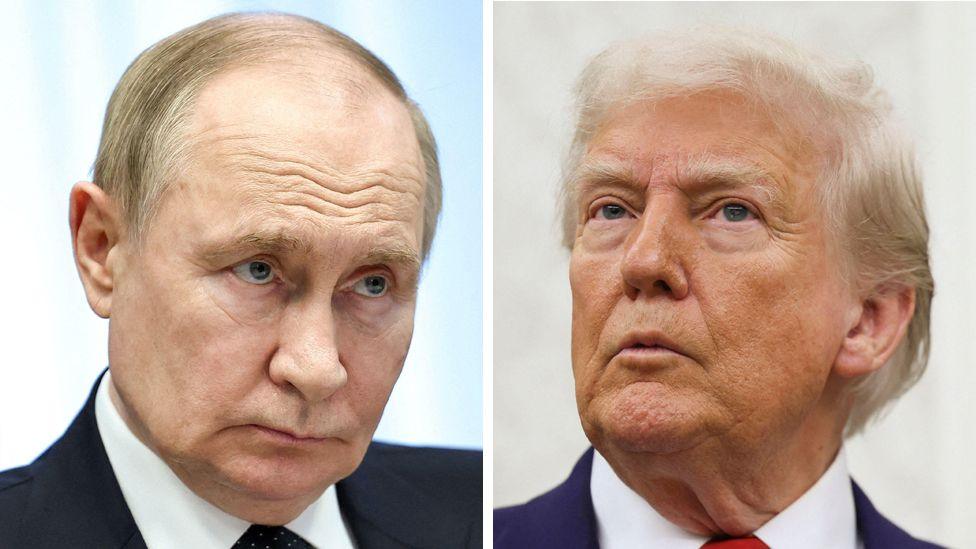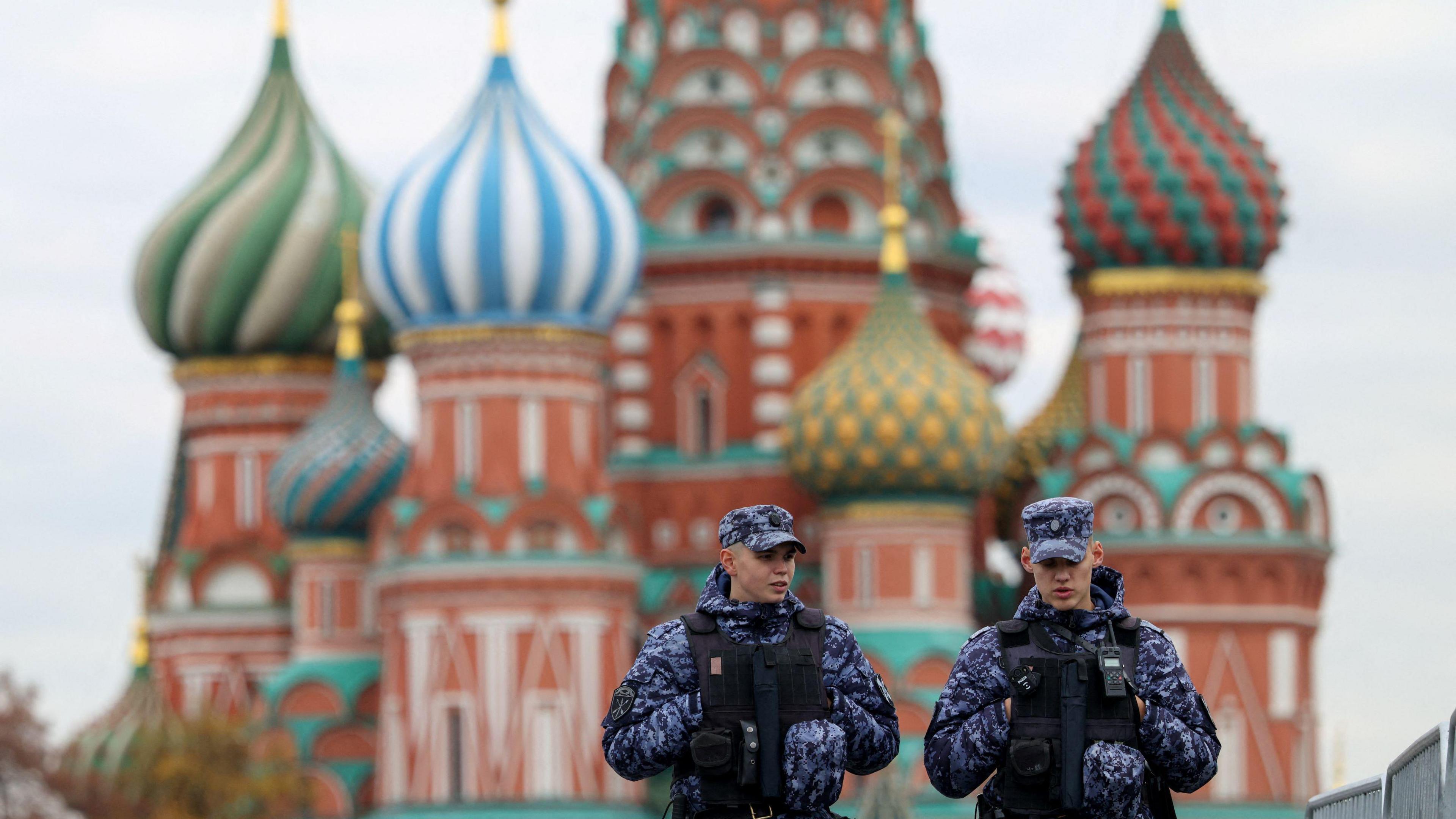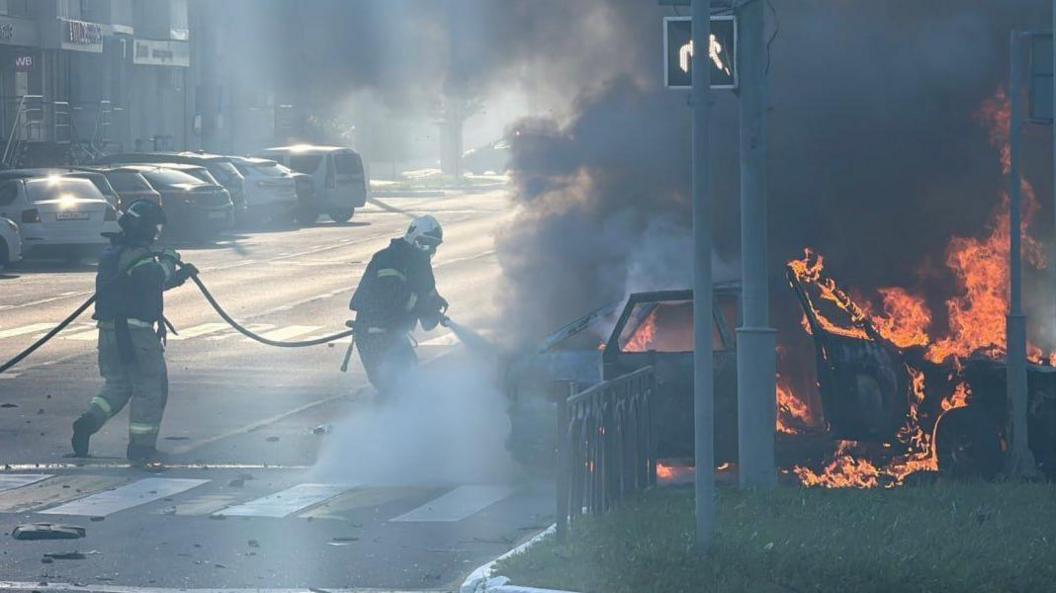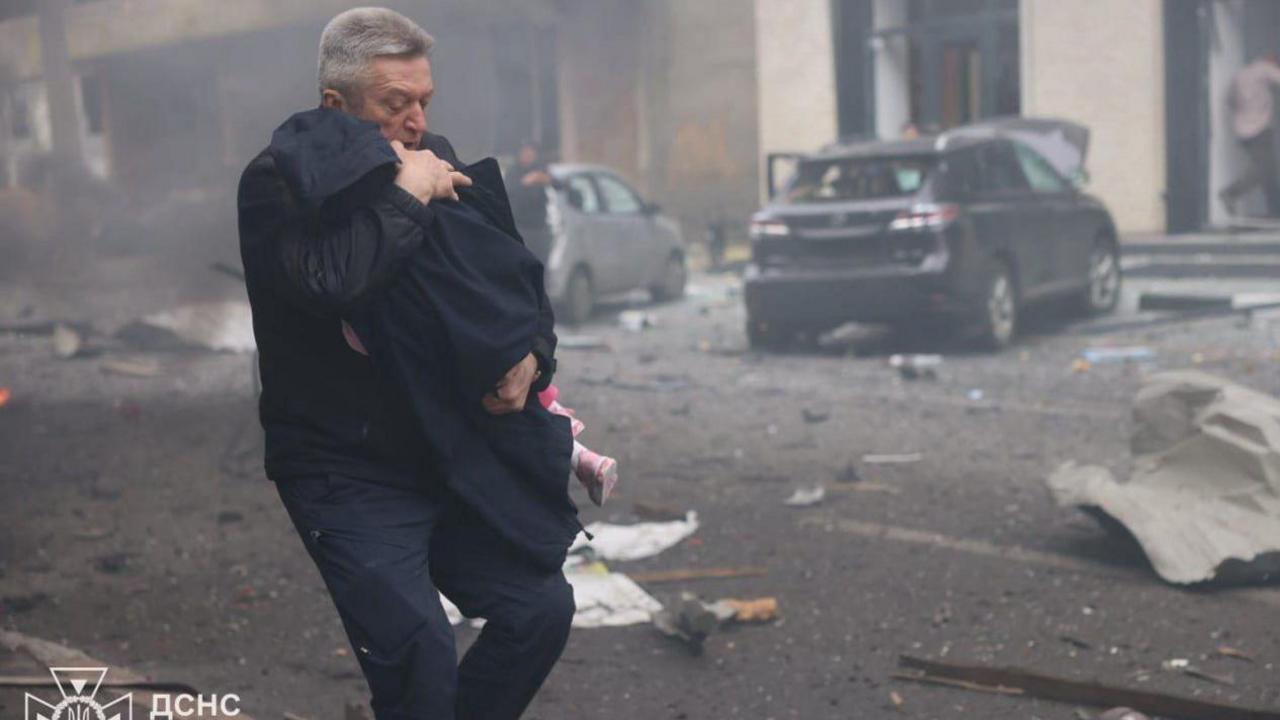Rosenberg: Trump abandons carrot and wields stick over Putin in Ukraine talks

- Published
One week ago I had the distinct feeling it was Groundhog Day, or as the Russians call it, Dyen Surka.
Amid US threats to pressure Moscow - by supplying Tomahawk missiles to Ukraine - Vladimir Putin and President Donald Trump held a telephone call. The result: the announcement of a US-Russia summit in Budapest.
Last August, amid threats of additional US sanctions against Russia, Putin met Trump's special envoy Steve Witkoff. The result: the announcement of a US-Russia summit in Alaska.
Déjà vu.
But Groundhog Day seems to be over.
The Alaska meeting went ahead, with minimal preparation and little result.
But the Budapest summit is off. It barely had time to be "on", to be fair. Now President Trump has cancelled it.
"It didn't feel like we were going to get to the place we have to get," the US president told reporters.
And that's not all.
Previously, Trump had not followed through on threats of more pressure on Russia, preferring carrots to sticks in his dealings with the Kremlin.
For the moment he has put his carrots away.
Instead he's imposed sanctions on two major Russian oil companies, Rosneft and Lukoil.
That's unlikely to force a U-turn on the war from President Putin. But it's a sign of Trump's frustration with the Kremlin's unwillingness to make any compromise or concessions to end the fighting in Ukraine.
The Russians don't take kindly to sticks.
On Thursday, President Putin told reporters that the new US sanctions were an "unfriendly act" and an attempt to put pressure on Russia.
"But no self-respecting country and no self-respecting people ever decide anything under pressure."
Former Russian President Dmitry Medvedev was less diplomatic.
"The USA is our enemy and their talkative 'peacemaker' has now fully set on the path to war with Russia," he wrote on social media. "The decisions that have been taken are an act of war against Russia."
Thursday morning's edition of the tabloid Moskovsky Komsomolets was slightly less dramatic, but obviously unflattering. The paper criticised "the capriciousness and fickleness of [Russia's] main negotiating partner."
So what's changed?
Instead of rushing off to summit no. 2, as he had done for summit no.1, this time around President Trump was slightly more cautious.
He had asked Secretary of State Marco Rubio to lay the groundwork for the summit with the Russian Foreign Minister Sergei Lavrov to make sure there was a point in decamping to Budapest.
It soon became clear that there wasn't, and that a new summit now was unlikely to produce a breakthrough.
Russia is fiercely opposed to Donald Trump's idea of freezing the current battle lines in Ukraine.
The Kremlin is determined to take control, at the very least, of the entire Donbas region in eastern Ukraine. It has seized and occupied much of it.
But President Volodymyr Zelensky is refusing to cede to Russia those parts of the Donbas that Ukraine still controls.

Members of Russia's National Guard patrol Red Square near St. Basil's Cathedral in central Moscow on 23 October
Moscow would have welcomed a second US-Russia summit.
The first, in Alaska, was a diplomatic and political coup for the Kremlin. The red-carpet welcome in Anchorage for President Putin symbolised Russia's return to the international stage and the West's failure to isolate Moscow.
Over the last week Russian state media have been savouring the idea of a summit with President Trump in Europe, but without the European Union at the table. Russian commentators portrayed the proposed meeting in Budapest as a slap in the face for Brussels.
At the same time, few here seemed to believe that, even if it went ahead, the Budapest summit would produce the kind of result Moscow wanted.
Some Russian newspapers have been calling for the Russian army to continue fighting.
"There isn't a single reason Moscow should agree to a ceasefire," declared Moskovsky Komsomolets yesterday.
That doesn't mean the Kremlin doesn't want peace.
It does. But only on its terms. And right now those are unacceptable to Kyiv and, it would appear, to Washington.
Those terms involve more than just territory. Moscow is demanding that what it calls the "root causes" of the Ukraine war be addressed: an all-encompassing phrase with which Russia broaden its demands to include a halt to Nato enlargement eastwards.
Moscow is also widely believed to retain the goal of forcing Ukraine back into Russia's orbit.
Is Donald Trump ready to increase the pressure on Russia even more?
Possibly.
But it's also possible we may wake up one morning and find ourselves back in Groundhog Day.
"In the game of Trump tug-of-war, Russia is leading again," wrote Moskovsky Komsomolets after the Budapest summit had been announced.
"In the couple of weeks before the meeting in Budapest, Trump will be pulled in the opposite direction by telephone calls and visits from Europe. Then Putin will pull him back to our side again."
Related topics
- Published23 October

